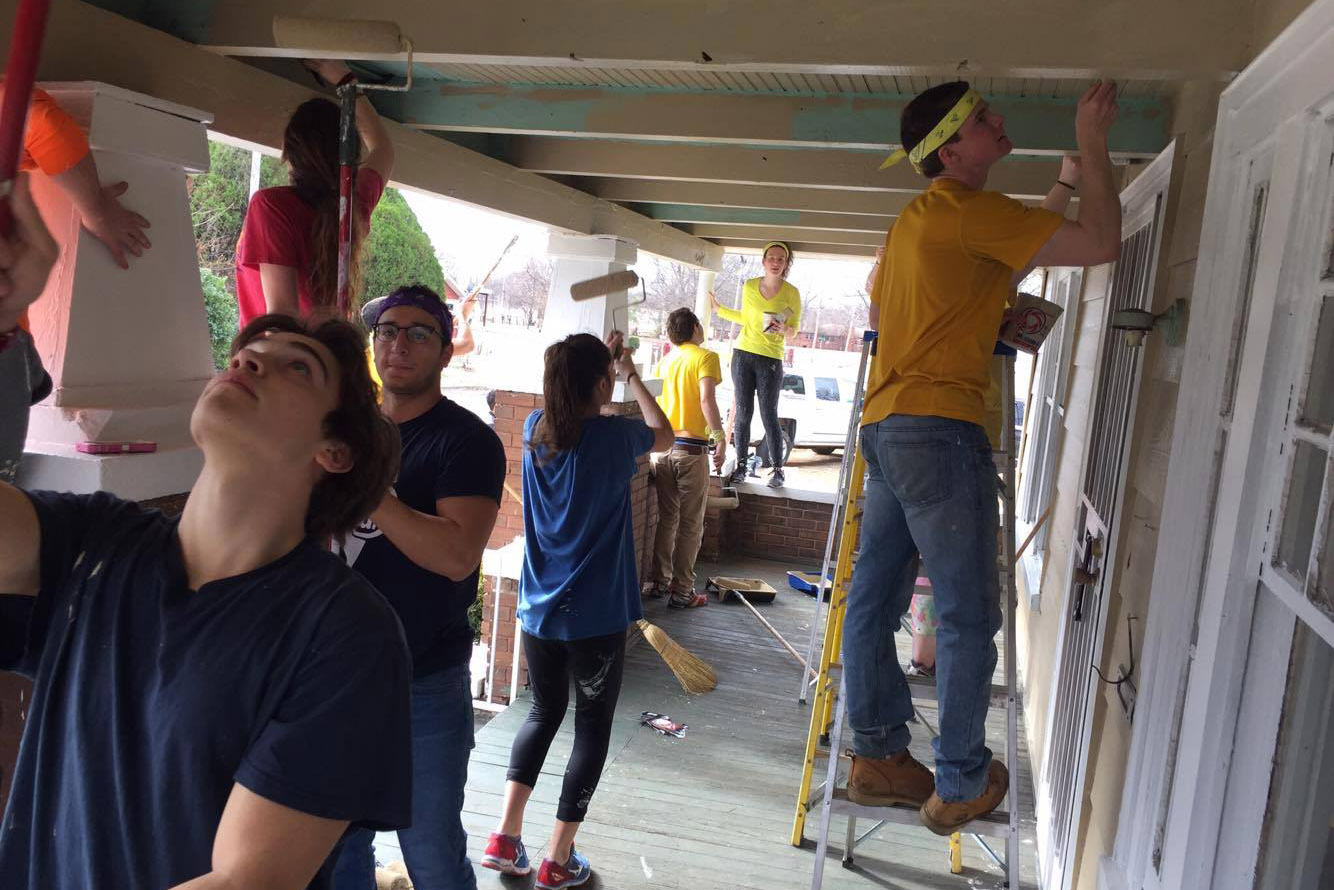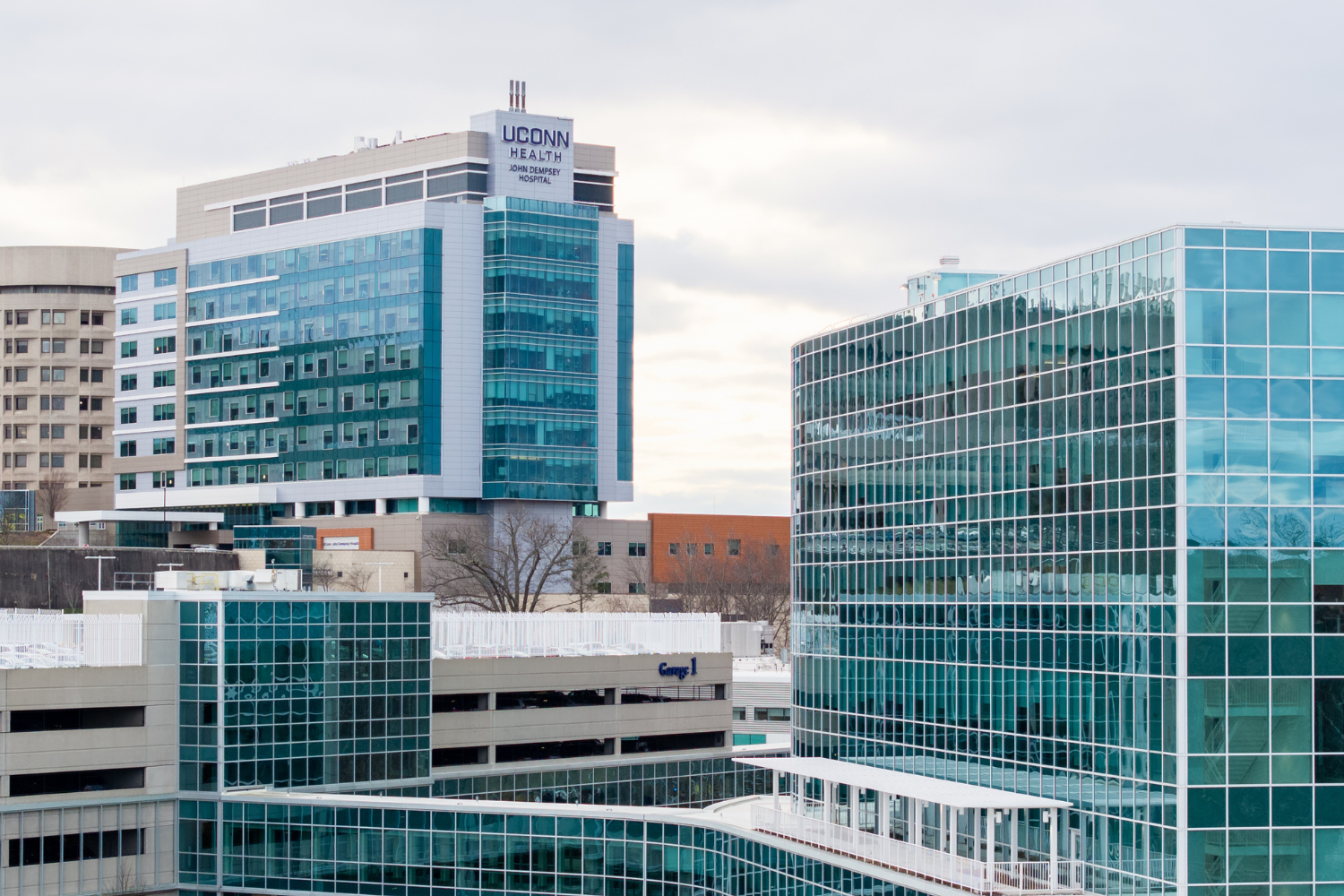A large group of UConn students will once again forgo the traditional spring break of the beach and parties next week and take part in an alternative trip that focuses on service through the the University’s Office of Community Outreach.
People think college students don’t care in general, but this is a chance to show that they do. — Megan Boyer '18 (CLAS)
Eight different trips by a total of more than 200 students and 14 staff members will take place during spring break 2018, March 10-18, to locations including New York; Philadelphia; Washington, D.C.; Detroit; the Cherokee nation of Oklahoma, Cosby, Tennessee; and Mullins, West Virginia.
Each trip also has student leaders who have experience of previous alternative break trips.
“The trips are very productive, as you get to immerse yourself in a community for an entire week and find out what the real needs are,” says Megan Boyer ’18 (CLAS), a molecular and cell biology/psychology major from Manchester, Connecticut. Boyer is taking her third alternative spring break this year; she traveled first to Atlanta, and then to Philadelphia as a trip leader, and this year is going to Utah to work on environmental conservation.
“It’s very meaningful to do this as a college student,” she says. “People think college students don’t care in general, but this is a chance to show that they do.”
UConn has a strong reputation for its alternative break program, and is ranked third in the country in the number of participants, according to “break away” – the leading national organization of these types of programs.
Students apply and are interviewed for the program to make sure they are serious about the goals of the trip. They are also responsible for paying their own travel, food, and transportation costs.
“These trips are no-frills,” says Ashley Hazleton ’11 (CLAS), coordinator of alternative breaks and community service days in Student Activities. Travel for most of the domestic trips, other than those on the West Coast, is by bus, and overnights are usually spent at lower-level hotels or facilities such as local elementary schools.
Hazleton notes that Community Outreach also does a lot of fundraising during the year to keep expenses down. Fundraisers include a golf tournament, a give-a-meal program through Dining Services, and program distribution at football games.
Caroline Calandro ’18 (CLAS), a senior from Burlington, Connecticut who is majoring in psychology and journalism, will be making her seventh trip, as some of the trips also take place on weekends during the academic year and on winter break. She is now one of the student directors and will be on the Detroit trip this spring.
Calandro believes it’s important that the lessons of an alternative break last well beyond the actual trip.
“The job of staff and the student directors is to provide educational material prior to the trip, and then have productive post-trip meetings back on campus,” she says. “I think that one of the main goals of alternative break is what the participants take away from it, and encouraging civic engagement for their lifetime.”
The service on these trips can be both enriching and physically demanding.
Boyer recalls visiting an Alcoholics Anonymous meeting in Philadelphia and the CDC in Atlanta as two of her most memorable experiences.
She says the Philadelphia trip showcased health care as something holistic, working with a group of people who really want to change people’s lives. And at the CDC, “we saw how they tackle issues in underserved urban communities.” That’s something applicable to her own future, she notes.
Costa Rica was the destination for senior Sam Wazorko ’18 (CLAS), also of Burlington, who is an economics and finance major, and a dozen other UConn students this past winter break. The 14-day trip to Costa Rica, the only international alternative break UConn offers, focuses on community development and building projects, such as constructing an addition to a health care facility.
“We were in a very rural area,” recalls Wazorko. “We flew into Liberia [capital of one of the provinces in Costa Rica] and drove four hours into the mountains. There is no large machinery, so when we were working on building projects, we had to mix all the concrete by hand, bag by bag.”
The UConn group slept at a school in Costa Rica and worked with local children on English literacy.
Junior Ajeet Sandhu ’19 (ENG) is a civil engineering major from Manchester, Connecticut, who had not done much community service before coming to UConn. He is now a first-time student leader going on a trip to Washington, D.C., this spring break.
“My first trip was to Birmingham, [Alabama,] and the first day on the bus I was thinking ‘What am I doing here?’” he says. “But I love [this type of experience] now, and have learned so many things. I’ve met the nicest people, and have made great friends.”
His trip to Washington, D.C., will also feature a meeting with U.S. Sen. Chris Murphy and U.S. Rep. Joe Courtney of Connecticut.
“We want to discuss issues with them that will be applicable to our own communities in Connecticut,” says Sandhu.
Sandhu’s trip to Birmingham focused on civil rights and poverty. “I thought I knew a lot about these topics, but once you are there it becomes very real. We did a lot of service work on homes that were old and broken down and now are livable.”
Jonathan Markovics ’18 (CLAS) is a senior at UConn Avery Point, majoring in economics and maritime studies. The Clinton, Connecticut, native has been a leader the past three autumns on a trip that has a local focus – the marine environment in Groton. A group of 22 students from both the Avery Point and Storrs campuses, spend the weekend at Project Oceanology in Groton, where they focus on conservation and protection.
The work involves beach cleanup, beach fencing to prevent erosion, and removal of invasive species at beaches such as Bluff Point in Groton and Barn Island in Stonington.
Markovics feels that the alternative break program brings students together, which he sees as especially important at a campus like Avery Point.
“This is a chance to bring a lot of students in,” said Markovics. “A lot of students at Avery Point work at the same as going to school, so they are going in many different directions. Whether they eventually go to Storrs or stay at Avery Point, involvement in a program like this makes them more active and more vocal.”
Sandhu, who is taking on a leadership role for the first time, says he had never seen himself as a leader before, but the alternative break program has taught him to be more open and assertive.
Especially as a leader, says Calandro, “we are constantly working with each other before, during, and after the trips, making so many arrangements and plans.”
From helping out communities far and wide to developing students’ leadership skills and fostering a mindset of service, the UConn alternative spring breaks are a valuable experience in so many different ways.



